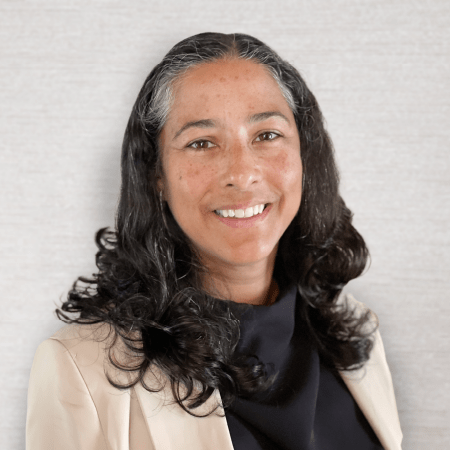
Asha Harrison is the Program Director for DT Global’s OTI Sudan portfolio in the Conflict Prevention, Stabilization & Transition (CPST) Practice. In this role, she oversees project management units and field teams to provide direction, technical guidance, and oversight over program performance. A former COP, DCOP (both programs and operations), and Project Manager, she has overseen projects in the Middle East, South, Southeast, and Central Asia, and East and West Africa, that focus on stabilization, social cohesion, preventing and countering violent extremism, peace building, and resilience. She brings over fifteen years of experience in leading and managing projects in conflict-affected environments.
Prior to joining DT Global, Asha held long term field positions in Jordan, Timor-Leste, and Sri Lanka, supporting project implementation and management. She also supported DAI Global’s Countering Violent Extremism (CVE) portfolio, managing CVE projects in Central Asia and East Africa and serving as a contributor to business development. Asha has worked as a Governance and Conflict Advisor for USAID/Mali and has supported start-up operations for projects in Francophone West Africa. Asha is a seasoned grants professional, supporting grant design, implementation, and training in South and Southeast Asia on USAID-funded projects.
If you could change something in the world, what would it be?
I would love to see freely available training, in multiple languages, on how to increase local partners’ access to donor funds, as I believe that as development professionals, it is our responsibility to do our work so effectively that we are no longer needed. In any way we can, we must build capacity of local partners to access funding sources directly in order to bring a plurality of voices into development practice and policy.
I would also like to see a greater development commitment to funding the care economy, in order to bring more women into the industry. The burden of care falls disproportionately on women, across the globe, and without this commitment, there cannot be equality in this sector.
What’s the best piece of advice you’ve ever been given?
After acquiring my postgraduate degree, I struggled to find long term assignments in the field until my first boss in the development industry told me that if I wanted to work on a project, I should acquire a transferrable skill, decide where I wanted to work, and just get out there; learn some of the local language and network in person with people doing the work I wanted to do. He was 100% right! I knew I wanted to work in development in Timor-Leste so I took a one-month course on teaching English as a foreign language, bought a plane ticket to Dili, and within 6 weeks of landing there I was working on a project.